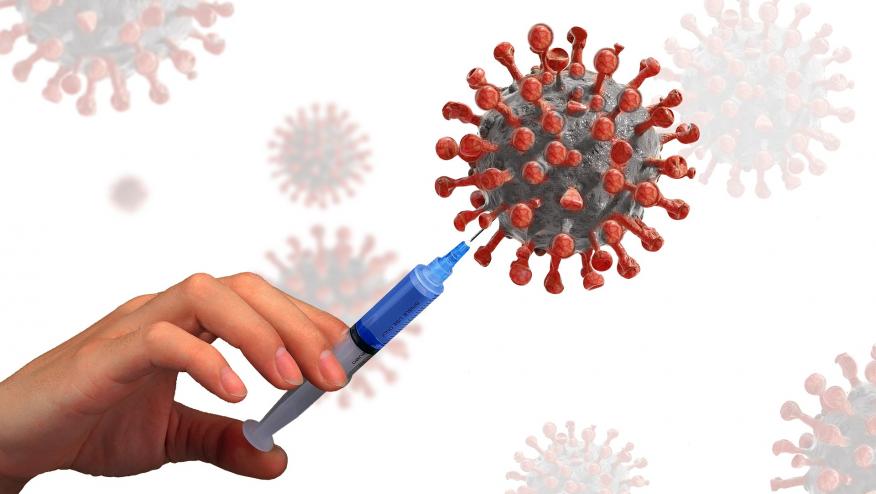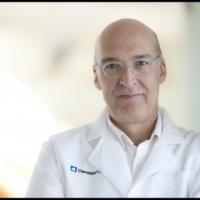My Personal Delta COVID-19 Breakthrough Infection Save

As many of you are aware, I have written and spoken on COVID-19 extensively over these past 20 months, and just last month wrote about the dangers of the delta variant. In July, things took an unexpected turn when I developed a breakthrough infection with the delta variant.
It’s different when it’s your sickness, as the great medical humanist Eric Cassell, MD, has long reminded us. He said that any attendant suffering we experience with an illness, whether it be physical, psychological or existential is totally personal. If nothing else, aside from being fortunate to have had a mild case and have fully recovered, it has been quite humbling. I would like to share with you this month some personal reflections and lessons this experience has taught me.
Leonard H. Calabrese
First, the facts. After an 18-month hiatus, I ventured out on my first academic trip in early July to speak about COVID-19 to the wonderful Florida Society of Rheumatology, which was a socially distanced meeting, and occurred at a time when we were only just starting to suspect that breakthrough cases in fully vaccinated healthy people like me were starting to happen. I was not fully appreciative that Florida was evolving as an epicenter for breakthrough infections, nor did I factor in that Florida is a state run by a governor who has chosen not to govern on the basis of science and inexplicably favors personal freedom over the welfare and safety of his citizens.
In addition, we were beginning to feel somewhat invincible from our vaccines for a short while, but something was starting to feel not quite right. I returned after 72 hours away and by 96 hours had the “sniffles.” The next day, I had a mild but odd headache, but thought it was a summer cold or my usual stuffiness from air travel, which I had not experienced for a long time. I worked, I exercised, I had no fever or cough – just a summer cold.
By day 6 of my return, my wife felt the same things and she (not me) wondered if we could have COVID-19. An hour later, we were looking at two positive RAPID tests purchased for $25 at a CVS, and we literally read them and wept. We soon lost our taste and smell to seal the deal but now, a month later, we are more or less fully recovered. I will add that while our illness was “mild-moderate” by CDC/NIH severity scales, it was not fun.
The reflections I would like to share with you fall into two categories. First, some lessons on how egregiously I committed systematic errors in metacognition in evaluating my own health, and secondly, how humbling this has been to me personally. As a result, one positive outcome of this experience has been my resolve to double down on my commitment to serving the profession by remaining completely committed to the study of COVID-19 and its impact on all aspects relating to immune-mediated diseases and our patients who suffer from them until this is over.
Patrick Croskerry, MD, PhD, the renowned expert in clinical decision-making, would cite dozens of cognitive errors that I, an expert, made in assessing my own health. First, I was guilty of the anchoring bias whereby I used my initial impression (summer cold) as an anchor for subsequent decision-making. Compounding this error was my failure to adjust clinical decision-making when things didn’t seem quite right and new data came to light. Secondly, I was clearly guilty of holding on to the optimism heuristic, as I subconsciously desired to have the diagnosis of least clinical impact on me. Finally, I displayed hubris in not recognizing the overconfidence I had in my own clinical decision-making. There are many other errors I committed, but I won’t bore you with them.
The humility came from many fronts but most poignantly from my experience in our medical school, where on day 5 of my illness I was privileged to give one of the very first live talks to our third-year students in nearly 2 years. Later that day, I participated in a small group where we were allowed to unmask! Fortunately, and documented by serial testing, I was apparently not infectious by that time, and no one was infected.
This pattern of infectivity (ie, early transmission to my wife but no apparent transmission to others after day 5) has turned out to be consistent with some virologic data on delta breakthrough infections, which have observed rapidly falling nasal viral loads after initial extremely high values in vaccinated people. I wrote an open letter to the class outlining my situation and explained the errors I committed in self-care and diagnostic reasoning. Humbling indeed for the full professor, but on the plus side I received many warm notes of empathy and appreciation.
My final thoughts are scientific. The first is that the delta threat is real, it’s serious and the main driver for the need for boosters. I have not quite decided as to whether I will get the booster in September as my natural infection may be sufficient or possibly superior (this is yet unclear and I will keep you posted), offering me more local-regional immunity and being variant-specific.
Secondly, we all must now recognize that breakthrough delta in healthy people is not uncommon and clinically different from COVID-19 in unvaccinated people. Data from the ZOE COVID database in the U.K. has documented that that breakthrough presentations are quite mild and distinct from de novo COVID-19 in the unvaccinated, and thus we must maintain a high index of suspicion in our patients and ourselves.
Finally, and above all, I have gratitude that my wife and I were both vaccinated, and the vaccines did their job for us. Not invincibility, but they did protect us from what we all know and fear can happen in COVID-19. I ask you all to join me and now double down on our efforts to promote vaccines to all we encounter. I truly believe our lives depend on it. Please share your own COVID-19 stories with me at calabrl@ccf.org or rheumatology@healio.com.
Join The Discussion
So grateful you and yours are recovered. Many thanks for your dedication. Personal stories may be our most potent tool of persuasion. Keep it up.
Have a glass of wine -Na Zdorovie!
Hi
Glad you and your wife are well and appreciate all your ongoing efforts to keep us updated on rheumatology issues and beyond.
All the best
Mahmood Ally South Africa










If you are a health practitioner, you may Login/Register to comment.
Due to the nature of these comment forums, only health practitioners are allowed to comment at this time.